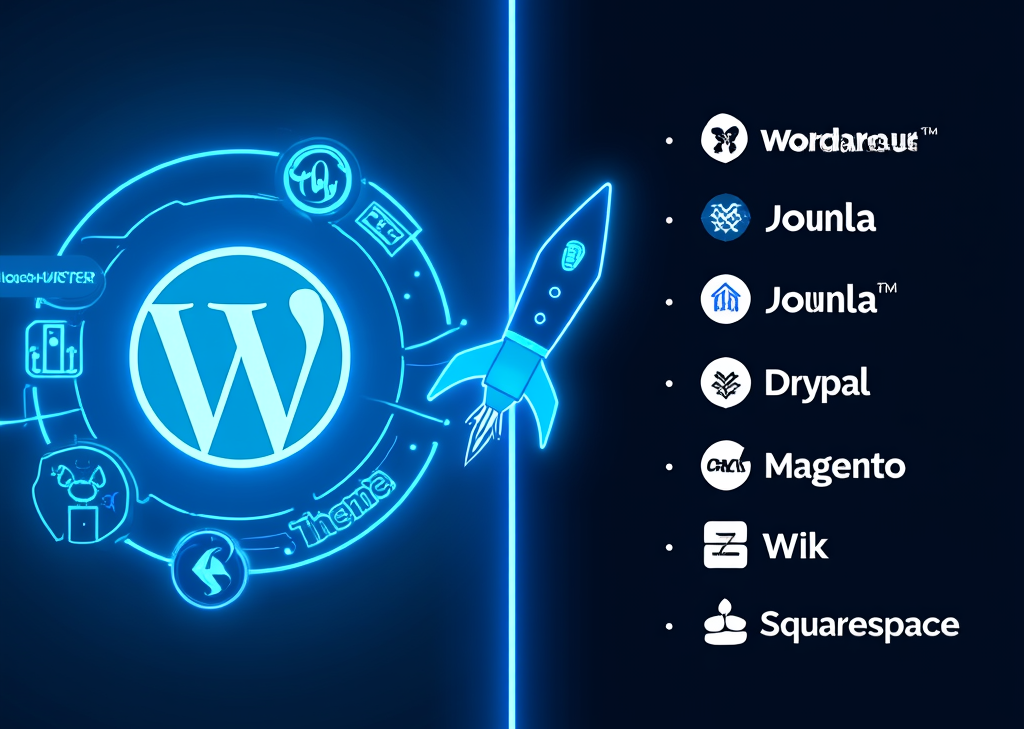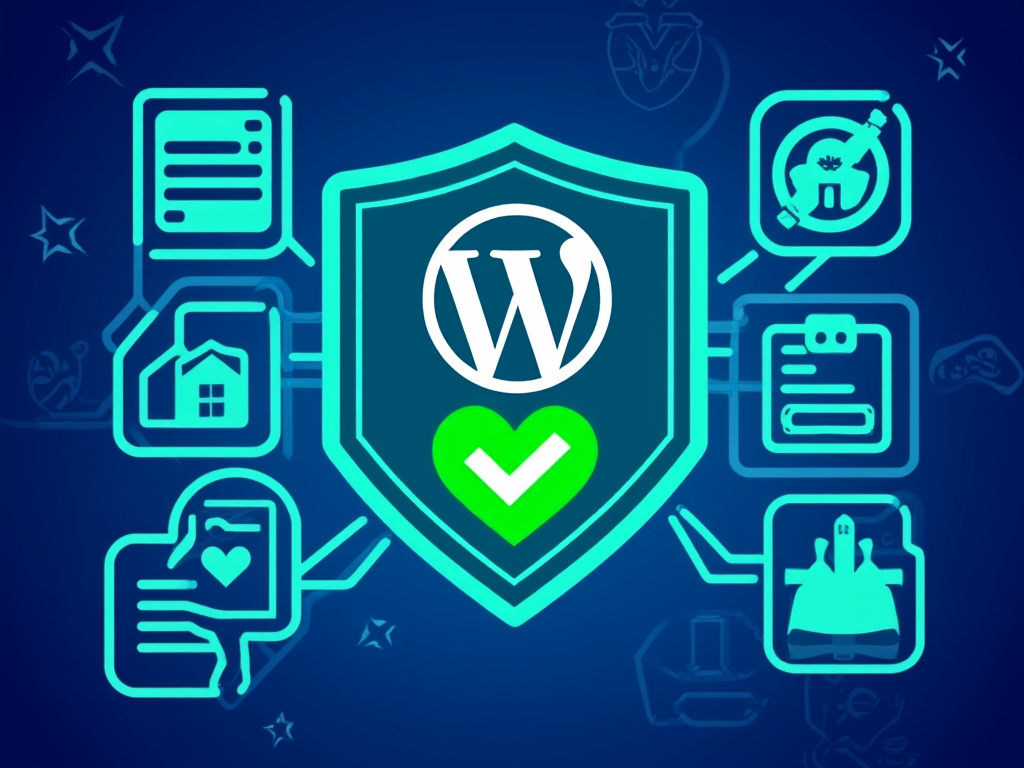WordPress vs other CMS: which is better?
Meta Description:
Explore the detailed comparison of WordPress and other CMS platforms, highlighting strengths, weaknesses, and which is best for your website needs in 2025.
Introduction
Choosing the right Content Management System (CMS) is pivotal for establishing a successful online presence. With a plethora of options available, from WordPress to Joomla, Drupal, and beyond, it’s crucial to get the facts straight about what each platform brings to the table. This in-depth comparison takes a closer look at WordPress vs other CMS platforms, guiding you through the intricate maze of strengths and weaknesses that determine which system suits your needs best.
Main Section
Why WordPress Often Stands Out (The King of CMS)
WordPress commands a staggering presence in the CMS landscape, radiating versatility, ease of use, and a powerful scalability that few can parallel. Hosting millions of sites globally—including esteemed entities such as the White House and BBC America—it’s clear why WordPress is often the first choice for website creators.
Key advantages include:
- Ease of Use: WordPress greets newcomers with an intuitive interface that feels as familiar as typing on a word processor. A quick installation can have you ready to publish within minutes. You won’t need an elite tech degree to get comfortable!
- Extensive Plugin and Theme Ecosystem: With over 60,000 plugins at your disposal, you can enhance your site’s functionality significantly. Want to optimize SEO? Build an e-commerce shop? You name it; WordPress has a plugin for that.
- SEO Friendliness: Engineered with clean code, WordPress makes it easy to optimize your content. From URLs to meta tags and heading structures, it’s conducive to organic search success.
- Cost-Effectiveness: Being open-source, WordPress has no associated licensing fees. Sure, hosting may incur costs, and premium themes might too, but overall, you’ll find it’s more budget-friendly compared to proprietary systems.
- Community Support and Continuous Updates: The vast WordPress community contributes to regular updates and security patches, maintaining a resilient platform that evolves with changing internet landscapes.
- Scalability and Adaptability: Whether you’re running a humble blog or gearing up a medium-sized e-commerce store, WordPress’s adaptability allows you to embrace growth without triggering a platform switch.
However, WordPress isn’t without its drawbacks:
- Performance Concerns with Heavy Plugins: Loading your site with too many plugins can lead to sluggish performance, turning away potential visitors.
- Security Vulnerabilities: Being open-source means maintenance is key. Neglecting updates can expose you to risks, especially if using poorly maintained plugins.
- Learning Curve for Advanced Features: Sure, the basics are easy, but if you wish to customize further, prepare for a steep learning curve, requiring knowledge of coding languages like PHP and CSS.
- Plugin Dependency and Compatibility Issues: Relying heavily on third-party plugins can sometimes lead to conflicts, creating maintenance headaches.
Examples of WordPress Usage
The beauty of WordPress lies in its versatility:
- Blogging: From personal journals to professional writing portfolios, the blog-style platform is a haven for writers seeking an uncomplicated publishing process.
- E-commerce: With WooCommerce, WordPress seamlessly transforms into a nimble online store—ideal for small to medium operations wanting a flexible, manageable experience.
Comparing WordPress with Other Popular CMS Platforms
| CMS | Main Strengths | Main Weaknesses | Best For |
|---|---|---|---|
| WordPress | Ultimate customization, SEO, huge plugin/theme library, beginner-friendly | Plugin management, security risks, requires updates | Blogs, SMEs, scalable e-commerce, corporate sites |
| Joomla | Multilingual support, customizable, good SEO | Steep learning curve, complex content management | Sites needing multilingual content and versatility |
| Drupal | Top-notch security, performance optimized, mobile-friendly | Complex setup, high memory use, fewer free themes | Government, enterprise, security-focused sites |
| Magento | Advanced e-commerce features, robust product management | Not ideal for content-heavy sites, complex for beginners | Large-scale e-commerce stores |
| Wix | Simple drag-and-drop interface, hundreds of templates | Limited scalability, fewer themes/plugins than WordPress | Beginners needing small, straightforward sites |
| Squarespace | Beautiful templates, easy use, unlimited storage | No free plan, limited advanced customization | Creative portfolios, small business sites |
Detailed Insights
When comparing other platforms to WordPress, you’ll find some fascinating details highlight what they excel in and where they stumble:
- Joomla shines with its multilingual capabilities, making it suitable for diverse audiences, but the steep learning curve can intimidate newcomers.
- Drupal boasts unmatched security and best-in-class performance, yet its technical setup can overwhelm users not versed in coding.
- Magento is a powerhouse for e-commerce, but its complexity can deter those not completely focused on retail.
- Wix and Squarespace are champions of simplicity, great for quick setups, but they lack the growth potential of WordPress, leaving you wanting more.
Choosing the Right CMS Depends on:
- Business Needs and Resources: Identify your specific aims—WordPress is a fit for those who anticipate growth.
- Budget: The potential costs associated with WordPress make it a strong contender compared to more expensive proprietary alternatives.
- Technical Skill: While WordPress is friendly to newbies, those seeking deep customization will have to adapt to some coding challenges.
- Security: Drupal may be a safe bet for sites prioritizing security; whereas WordPress hinges on thorough updates and careful plugin selection.
BEST OFFERS:
Do you want to create your own company website or create your own online business on the Internet?
– WEB HOSTING
– DOMAIN REGISTRATION
– WEB DEVELOPMENT
– SITE BUILDER



Conclusion: Reflecting on the CMS Landscape
As we navigate the vast ecosystem of Content Management Systems, it’s clear that choosing the right platform requires more than just surface-level understanding. While WordPress stands out with its remarkable balance of usability, versatility, and scalability, alternative systems like Joomla and Drupal cater to specific needs that WordPress may not fulfill. Similarly, Magento thrives in the e-commerce realm, offering specialized features that can empower large online stores. Yet it lacks the flexibility and breadth that WordPress offers to myriad site types.
Making an Informed Decision
When deliberating on which CMS to adopt, it helps to weigh your current and future goals against the offered features of each system. Reflect on:
- Your Target Audience: Consider where your users are and how they’ll interact with your content. WordPress’s robust plugins support various functionalities that enhance user engagements, such as contact forms and SEO tools.
- Future Growth: If expansion and added functionalities are on your roadmap, starting with WordPress can save you from the headaches associated with migration later. The ease of integrating new features via plugins positions it as a long-term ally.
- Security Management: Regular updates and responsible plugin management are paramount when utilizing WordPress. However, some platforms like Drupal may provide you peace of mind if security is a primary concern.
- Technical Skills: For those less familiar with coding, WordPress is still an accessible choice, allowing you to gradually learn as your project grows. The community support can be another vital resource for troubleshooting and learning best practices.
Best Use Cases
WordPress excels across various website categories:
- Blogs & Portfolios: Perfect for personal stories or creative showcases that rely on content management simplicity and eloquent design.
- Small and Medium Enterprises: Businesses looking for an agile site that double as an e-commerce platform can leverage WooCommerce effortlessly.
- Corporate Sites: A polished online presence for larger businesses ensures that they maintain a competitive edge while providing expanded service information to clients.
Final Considerations
The choice between WordPress and its competitors should ultimately align with your organization’s mission, available resources, and long-term digital strategy. With its rich feature set, commitment to accessibility, and active community, WordPress remains compelling for a majority of users—especially for those looking to create modern, scalable sites.
As the digital landscape continues to evolve, keep an eye on emerging trends and technologies that may influence CMS choices, such as increasing demands for web speed and security. Each platform offers unique strengths to cater to different needs, which ultimately helps in building a better web experience for all.
Explore Further
For a deeper dive into the nuances of CMS selection and the ongoing dialogue about web development technologies, check out these enlightening resources:
- WordPress vs. Joomla vs. Drupal: The Ultimate Comparison
- Building an Online Store: WordPress vs. Magento
- Wix vs. Squarespace: Which is the Best for Your Business?
Ultimately, the path to a successful website hinges on understanding your priorities—be it flexibility, functionality, or user-friendliness. May your journey in the CMS realm be illuminating and fruitful!
References
- WordPress Official Site
- Joomla Official Site
- Drupal Official Site
- Magento Official Site
- Wix Official Site
- Squarespace Official Site
BEST OFFERS:
Do you want to create your own company website or create your own online business on the Internet?
– WEB HOSTING
– DOMAIN REGISTRATION
– WEB DEVELOPMENT
– SITE BUILDER








